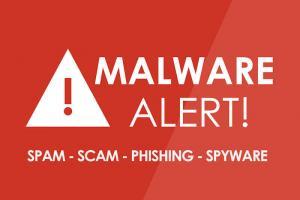 You can remove malware from your computer should it become infected, but some damage can remain that cannot be undone. If you haven’t backed up your files you could be in serious trouble of losing your files. So, the best thing you can do is prevent malware from infecting your computer.
You can remove malware from your computer should it become infected, but some damage can remain that cannot be undone. If you haven’t backed up your files you could be in serious trouble of losing your files. So, the best thing you can do is prevent malware from infecting your computer.
Here are some great tips to prevent malware and help you keep your computer healthy.
- Protect vulnerabilities on your computer and on your website. Keep your operating system, browsers, and plugins up to date. Updates to operating systems, browsers, and plugins are often released to patch any security vulnerabilities discovered. Cybercriminals can find their way in through vulnerabilities and infect your computer. If there are plugins or programs you no longer use, remove them from your computer or website so they are not used as a doorway to an attack.
- Check your emails carefully. Cybercriminals will try to make their email look like it is coming from your bank, tech support, Pay Pal or some other friendly source when in fact they are not from them at all. Check the sender’s address. Is it from the actual company? Hover over links provided in the body of the email. Is the URL legit? Read the language of the email carefully. Are there weird line breaks? Awkwardly constructed sentences that sound foreign? Also know the typical methods of communication for important organizations. For example, Pay Pal will never ask for your username and password when contacting you.
- Practice safe browsing while searching the web. Use strong passwords. You may want to use a password managing program like DashLane. A strong password is long, is not written down anywhere, is changed often, and isn’t tied to easily found personal information, like a birthday. It’s also not repeated for different logins. This can be difficult, which is why we recommend using a password managing program like DashLane, which collects, remembers, and encrypts passwords for your computer. Also log out of websites after you’re done. if you don’t you could be leaving yourself vulnerable, especially if you’re using a public computer. For example, if you use a public computer to log into your Facebook account, remember to log out when you leave. If you don’t, someone can get into your account. Also you can use Account Killer to delete accounts you no longer use.
- Use many security layers. Use a firewall, antivirus and anti-malware programs. Your firewall and antivirus programs will detect and block known viruses and malware.
Using many layers of security, being aware while browsing online and when reading your email will keep your computer and website protected from malware infections.
